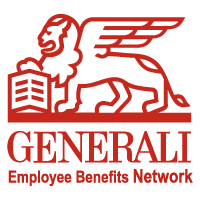Cancer doesn’t discriminate so why would an employer?

At an insurance level…
Group risk industry body GRiD recently published its Claims Survey (2018) which reported on the annual claims statistics across all insurers. Cancer represented the top cause of claims in the case of group life assurance (43 per cent, with heart disease second at 14 per cent); group critical illness (68 per cent, with heart attack second at nine per cent); and just under a quarter of all group income protection claims were related to cancer – mental illness was just marginally higher at 24.5 per cent.
Financial payouts represented only half the story though. In the case of group income protection, a total of 4,944 people were helped back to work after a period of sick leave. A further 7,879 were assisted by the industry through referrals to help and support funded by group risk insurers.
Katharine Moxham, spokesperson for GRiD, commented: “One size doesn’t fit all – people’s needs are met when they are treated as individuals. These figures illustrate the very real difference that group risk protection products make to peoples’ lives day in and day out.”
At a societal level…
According to the latest statistics from Macmillan Cancer Support, 2.5 million people in the UK are now living with (and after) cancer. The charity predicts that by 2020, almost one in two people will get cancer at some point in their lives. Furthermore, each year 120,000 people of working age are diagnosed with the disease and this figure is increasing all the time as early diagnosis techniques, testing and survival rates improve.
In short, it’s highly likely that every employer will need to focus on successfully managing an employee with cancer either now or in the not-too-distant future.
Whilst some employers already have this experience and have managed the situation for the benefit of everyone concerned, it seems others are falling short.
“People are surviving [cancer] and wanting to get back to normality so employers are having to play catch up,” says Dr Julie Denning, Partner at Working Towards Wellbeing, a specialist in providing support to employees with cancer and their employers, and one of Generali’s rehabilitation partners.
The vast majority (85 per cent) of people in work when they were diagnosed with cancer say that continuing work is important to them, according to 2016 research by Macmillan and YouGov. The most common reason for this is ‘to maintain a sense of normality’ (60 per cent) followed by ‘I needed the money’ (54 per cent).
One in five face discrimination
However, the same research revealed that one in five people who return to work after cancer face discrimination from their employer or colleagues. In addition, more than a third report other negative experiences, such as feeling guilty for having to take time off for medical appointments and a loss of confidence in their ability to do their job.
Worryingly, 15 per cent say they returned to work ‘before they felt ready’. And 14 per cent of people give up work altogether or are made redundant as a result of their diagnosis.
Macmillan is calling on employers to make sure they have appropriate policies in place and that their HR and line managers have the skills to support staff affected by cancer. It’s also vital that employers fulfill their legal obligations, as laid out in the Equality Act, to make reasonable adjustments, which could enable employees with cancer to stay in or return to work if they want to.
Able, not disabled
After treatment ends, chronic symptoms can persist, such as fatigue, pain and cognitive dysfunction. In other words, cancer can cause partially reduced work capacity as opposed to disability. People with reduced work capacity shouldn’t quit work. They should be supported to find, or remain in, an appropriate job. Employers must focus on what they can do rather than what they can’t.
“Employees will have symptoms that you can and cannot see. For example, one of the side effects of chemotherapy is peripheral neuropathy, or a tingling sensation in the hands and feet. This will cause problems – although not insurmountable – for people with a job that involves standing up or needing to use their hands,” adds Denning.
“Sometimes sight, concentration or speech is affected. And more often than not people will experience a fear of recurrence.
“The key is for support to start from the point of diagnosis, then keep the channels of communication open throughout treatment. That way, when the individual is ready to return to work, everyone is prepared.”
Three level model of support
Involvement of employers is key to improving services to people with cancer, as identified by the National Cancer Survivorship Initiative (NSCI) Work & Finance Workstream Vocational Rehabilitation Project (2009), a joint project between the Department of Health, University College London Institute of Neurology and Macmillan.
The project was established to identify ways to improve the work support available for people with cancer. The ‘three level model of work support’ was borne out of this and remains the recommended framework today:
Level 1: All patients who are in work or have the potential to work should be asked about their employment and receive information and signposting.
Level 2: People with specific concerns or worries should be provided with resources to support self-management.
Level 3: The smaller subset of people who have complex needs should be referred to a vocational rehabilitation service for specialist support.
Outcomes focused
Analysis of the outcomes of the NCSI project tells a compelling story about the likely positive impact of support on individuals – promoting recovery, reducing depression, improving personal relationships, preventing cancer poverty – and on potential gains for business through reducing absence and increasing human capital through retaining expertise.
“Support from the word ‘go’ ensures better clinical outcomes,” comments Denning. “This necessitates strong connections between all stakeholders. Group income protection helps ensure this joined up approach between the insurer, wellbeing services, employee and employer.”
Author is Colin Hawes, Head of Group Income Protection Claims and Medical Underwriting at Generali Employee Benefits UK.
This article was provided by Generali Employee Benefits UK.
Generali Employee Benefits is sponsoring REBA's Employee Wellbeing Congress 2018, which is being held on 5 July in London.
Supplied by REBA Associate Member, Generali Employee Benefits Network
Generali Employee Benefits' solutions are to protect and enhance the wellbeing of their workforce.







